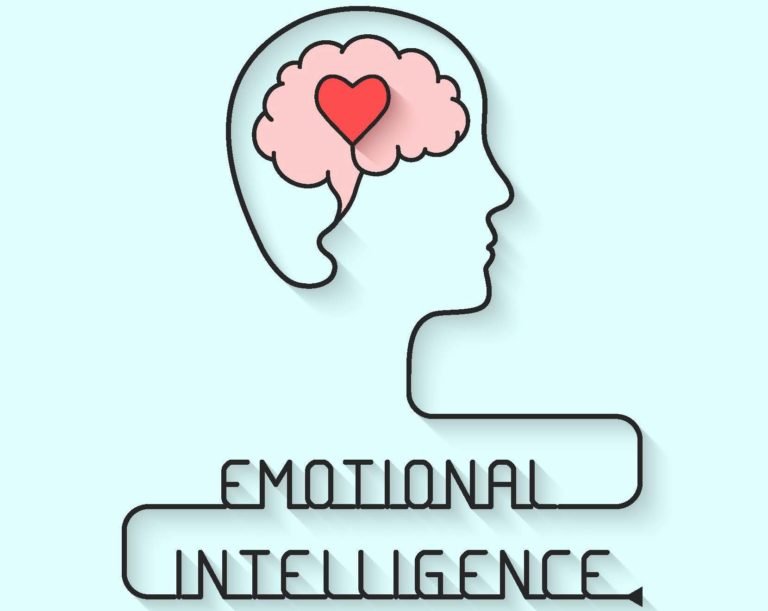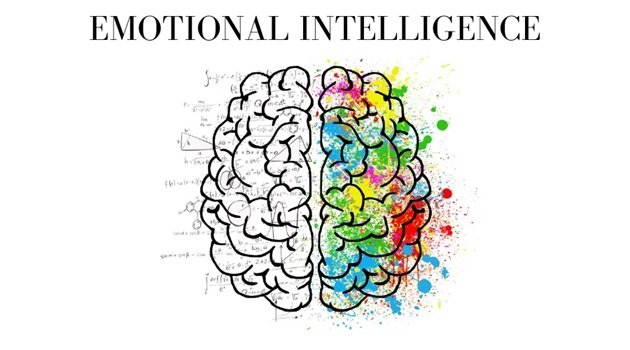Table of Contents
Welcome, dear readers, to a deep dive into the intriguing world of emotional intelligence (EI). Have you ever wondered why some people seem to navigate social situations with ease, while others struggle? Or why some leaders inspire loyalty and dedication, while others fail to connect? The secret often lies in emotional intelligence.
What is Emotional Intelligence?
Emotional intelligence is the ability to recognize, understand, and manage our own emotions, as well as the ability to recognize, understand, and influence the emotions of others. This concept was popularized by psychologist Daniel Goleman, whose groundbreaking work has shaped our understanding of EI and its importance in both personal and professional contexts.

The Four Components of Emotional Intelligence
Goleman breaks down emotional intelligence into four key components:
1. Self-Awareness:
This is the ability to recognize and understand your own emotions. It involves knowing your strengths and weaknesses and having a clear sense of your values and motives. Self-awareness is crucial because it allows you to understand how your emotions affect your thoughts and behavior.
Real-life Example: Consider a manager who notices that they feel particularly stressed during team meetings. By recognizing this stress (self-awareness), they can explore its source and address it, perhaps by improving their meeting preparation or seeking support from colleagues.
2. Self-Management
Once you’re aware of your emotions, the next step is managing them effectively. This means controlling impulsive feelings and behaviors, managing your emotions in healthy ways, taking initiative, and following through on commitments.
Real-life Example: Imagine a teacher who feels frustrated with a student’s repeated disruptions. Instead of reacting with anger, the teacher uses self-management techniques to stay calm, addressing the student’s behavior with patience and constructive feedback.
3. Social Awareness:
This involves the ability to understand the emotions, needs, and concerns of other people, pick up on emotional cues, feel comfortable socially, and recognize the power dynamics in a group or organization.
Real-life Example: A customer service representative who senses a caller’s frustration (social awareness) can respond with empathy, acknowledging the customer’s feelings and working to resolve their issue with care.
4. Relationship Management:
The ability to develop and maintain good relationships, communicate clearly, inspire and influence others, work well in a team, and manage conflict.
Real-life Example: A project leader who fosters a positive team environment by encouraging open communication, providing constructive feedback, and mediating conflicts effectively, ultimately leads their team to success.
How to Become Emotionally Intelligent
Developing emotional intelligence is a continuous process, but here are some practical steps to enhance your EI:
- Practice Self-Reflection: Regularly take time to reflect on your emotions and behaviors. Journaling can be a helpful tool for this.
- Seek Feedback: Ask for feedback from friends, family, or colleagues about how they perceive your emotional responses and interactions. This can provide valuable insights into areas for improvement.
- Develop Empathy: Practice putting yourself in others’ shoes. Try to understand their perspectives and emotions, even if you don’t agree with them.
- Improve Communication Skills: Work on active listening, clear articulation of thoughts and feelings, and effective non-verbal communication.
- Manage Stress: Learn stress management techniques such as mindfulness, meditation, or deep-breathing exercises. Managing stress is crucial for maintaining emotional balance.

Daniel Goleman’s Emotional Intelligence Theory
Daniel Goleman’s theory of emotional intelligence has revolutionized our understanding of human behavior. According to Goleman, EI is more important than IQ in determining success in life and work. He argues that emotional intelligence can be learned and developed, making it accessible to everyone.
Goleman’s model emphasizes the importance of EI in leadership and personal effectiveness. He believes that emotionally intelligent leaders are better equipped to handle the complexities of the modern workplace, fostering environments where employees feel valued and motivated.
The Impact of Emotional Intelligence
Emotional intelligence impacts various aspects of our lives:
- Personal Relationships: High EI helps in forming and maintaining healthy relationships by improving communication, empathy, and conflict resolution skills.
- Professional Success: In the workplace, EI contributes to better teamwork, leadership, and customer relations. It also enhances problem-solving and decision-making abilities.
- Mental Health: Understanding and managing emotions effectively reduces stress and promotes overall mental well-being.
Conclusion
Emotional intelligence is not just a buzzword; it’s a vital skill that can significantly improve your personal and professional life. By understanding and developing the four components of EI—self-awareness, self-management, social awareness, and relationship management—you can enhance your interactions and achieve greater success.
Remember, developing emotional intelligence is a journey, not a destination. Start small, practice regularly, and you’ll begin to see positive changes in how you connect with yourself and others. So, why not take the first step today and embark on the path to becoming more emotionally intelligent?
Stay tuned for more insights and tips on enhancing your personal and professional life. Happy learning!




1 Pingback